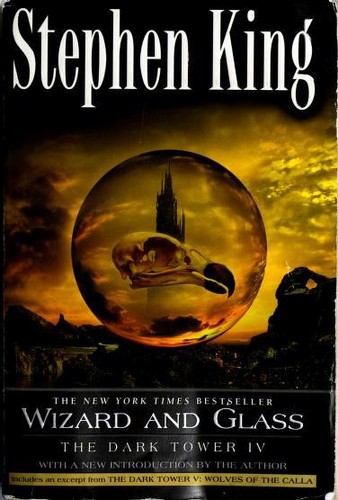Peter W. Flint commented on Wizard and Glass by Stephen King (The Dark Tower IV)
Time has turned forward again. Roland has finished his tale and confrontation with his past.
I find myself more interested in the evolution of Susan and Roland’s relationship this go round than the historical, world-building context development of the Dark Tower universe. How they evolve from mutual attraction and descend into idealism and addiction, covering their inability to control their lust with romantic fantasies, ultimately finding themselves unable to read the antagonistic reality organizing itself around them. In the end, I found myself grateful for having weathered similar situations, coming to my own adult understanding of balancing powerful feelings with bounded reason.
Susan’s experience as the story comes to a close illustrates a feminine trinity that complements that of Roland’s ka-tet, a corruption of the tripartite woman as maiden/mother/crone. As Susan loses her maidenhood and becomes a mother herself, her aunt Cordelia, her mother-figure yet spinster, descends into jealousy, contorting the role while egged on by the equally corrupted crone archetype of Rhea the witch. There’s a theme here on the classically understood social lives of women that I’m not really qualified to comment on, but seems to center around sources of envy within women’s circles and the behavior it engenders. In Susan’s case, it exemplifies how the stewards of life become destroyers of it.
Lastly, King makes an allusion that I never picked up on in earlier reads, and not sure if he develops it later in the series. The Dark Tower is the nexus of existence. We might think of it as a physical manifestation of metaphysics itself. The center of Being. It’s a powerful image that can be applied through a number of Eastern models of metaphysics. As Roland comes to understand his quest to enter and repair the sickness within the Dark Tower, he recognizes an opposing force, the Bright Tower of love, perhaps the energy that issues from and animates existence itself. The thing that Moves and Organizes beyond individual will. Between these two sits ka, a complex term encountered throughout the series. As with most of his symbolism, King leaves this idea open-ended, allowing the reader to make his own interpretations.

